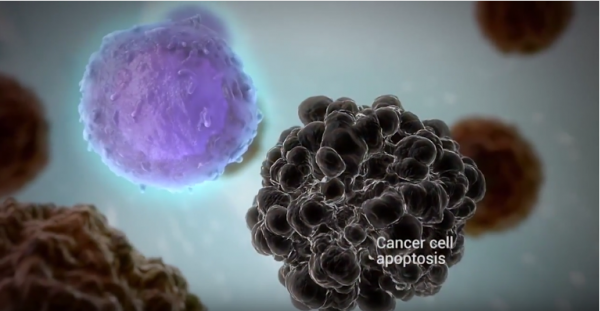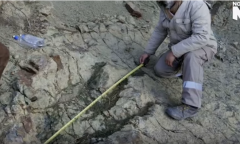By Prei Dy, | March 28, 2017

The mechanism works on a variety of rapidly proliferating human cells. (YouTube)
A joint venture between scientists from China and New Zealand, Wellington Zhaotai Therapies, wants to uncover cancer breakthroughs, particularly in the area of CAR-T cell immunotherapy.
Under the new agreement, Wellington-based Malaghan Institute and China's Hunan Zhaotai Medical Group will conduct several studies and trials on one of the latest research techniques as a new potential way to treat cancer.
Like Us on Facebook
The transfusion-style CAR-T cell process aims to develop vaccine-based immunotherapy treatments. It involves taking "T cells" from the patient and using a certain virus to genetically alter them to produce a specific receptor called the chimeric antigen receptor (CAR) on the cell surface. These cells are then introduce into the patients to target cancer.
The approach is sweeping the world with cancer drugs such as Keytruda and Opdivo. According to Stuff, the new treatment is quite similar with how Keytruda works on cells; however, the CAR-T cell is manipulated outside the body, while the Keytruda works within the body.
Describing the CAR-T cell immunotherapy process as exciting, Malaghan director Graham Le Gros said that this has actually been developed by China's Hunan Zhaotai. The process has already undergone preliminary phase-one trials and has kept some patients suffering from leukemia alive.
"What they need now is support in taking it to the next level for international distribution and for getting up to a level where it can be used clinically anywhere in the world," Le Gros said, adding that the role of Malaghan Institute is to make sure that the therapy could be safely administered and meets the international regulatory standards.
However, Le Gros could not provide a possible timetable for the project, saying "I can't say when... because it just raises expectations."
Meanwhile, Kath McPherson, Health Research Council chief executive, said the new project will open more doors for New Zealand.
"We will get the first access to those drugs and trial before things are spread to the rest of the world so it's a really unique opportunity," she said.
-
Use of Coronavirus Pandemic Drones Raises Privacy Concerns: Drones Spread Fear, Local Officials Say

-
Coronavirus Hampers The Delivery Of Lockheed Martin F-35 Stealth Fighters For 2020

-
Instagram Speeds Up Plans to Add Account Memorialization Feature Due to COVID-19 Deaths

-
NASA: Perseverance Plans to Bring 'Mars Rock' to Earth in 2031

-
600 Dead And 3,000 In The Hospital as Iranians Believed Drinking High-Concentrations of Alcohol Can Cure The Coronavirus

-
600 Dead And 3,000 In The Hospital as Iranians Believed Drinking High-Concentrations of Alcohol Can Cure The Coronavirus

-
COVID-19: Doctors, Nurses Use Virtual Reality to Learn New Skills in Treating Coronavirus Patients
















